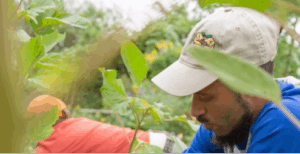AGU Report on Ethical and Responsible use of Artifical Intelligence and Machine Learning in the Earth and Space Sciences

Ethical standards, principles, and practices associated with Artifical Intelligence and Machine Learning in geosciences will be essential to researchers and the broader society in ensuring that the observation, modeling, and forecasting of geo-phenomena (broadly defined) happens in appropriately open and inclusive ways. The ethical principles put forward in this report align with and are based on guidance for responsible research provided by National Academies and other organizations that include the very role of a scientist in society. The overarching goal of these specific AI/ML Ethics Principles and Responsibilities is to supplement this existing ethical framework by focusing on considerations that researchers and organizations must address in addition to existing requirements for this rapidly evolving field.
AGU Report: Advancing Justice-Centered Community Science

This report is an open-sourced, collaborative e-textbook that brings together a variety of voices and perspectives on how to teach and create a more just science. Advancing Justice-Centered Community Science was developed through an NSF Research, Innovation, Synergies and Education (RISE) planning grant awarded to AGU. It is hosted freely online through Pressbooks. This text contains five modules that can be used to start building courses, workshops, or professional development trainings on justice-centered community science. It includes an instructor guide and example assignments. Readers are invited to modify, adapt, and expand upon the text. Future work can build upon the e-textbook to further refine the e-textbook and build additional modules and supporting materials.
